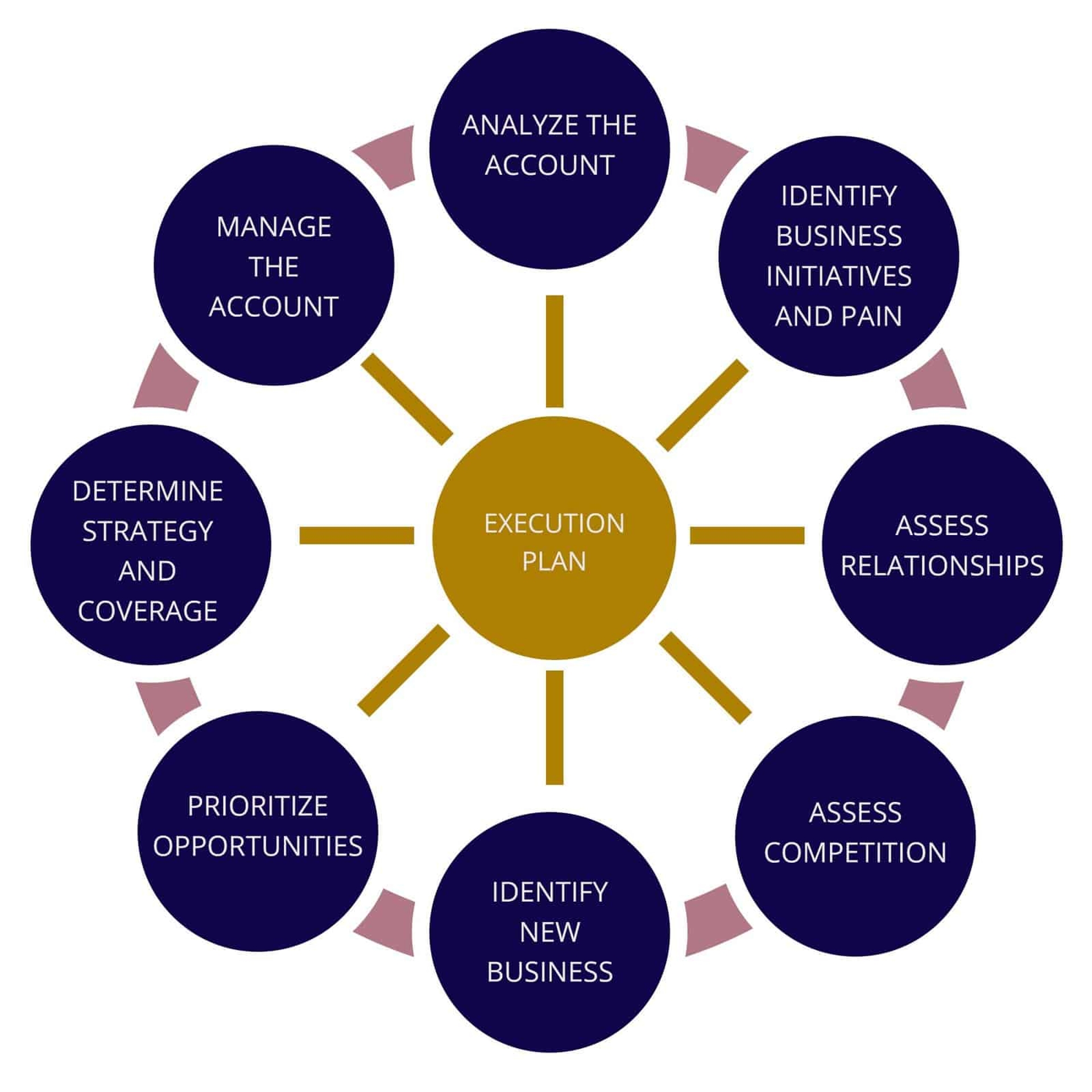Management Insights from a Standard Account Planning Methodology

Adopting a Consistent Methodology Drives Account Growth
According to research by McKinsey & Company, large strategic accounts contribute between 30 and 50 percent of a typical company’s revenue and margin. In this same report, McKinsey revealed that buyers in large accounts value the sales experience with a solution provider as much or more than product features, reliability, or price. Clearly, the quality of sales engagement with key accounts can make a very significant difference in maintaining and growing business with those strategic customers.
As a result, for most organisations, establishing standards of excellence for pursuing, developing, and managing relationships with significant accounts is required for consistent achievement of sales goals. If a quality experience with a solution provider is necessary to win business with strategic customers, as the McKinsey research shows, then defining how a sales team will deliver that experience in a consistent fashion is the first step towards success for any strategic account programme.
For this reason, Richardson Sales Performance has researched, developed and enhanced effective strategic account methodology and tools. Since 2003, we have observed and captured effective practises for engaging with major accounts, maximising their share of spend and protecting them against competitive encroachment. The latest version of advanced methodology, called Major Account Planning (MAP), provides a repeatable process for analysing and developing an effective plan for creating maximum value in strategic accounts and thereby generating higher amounts of revenue and profits.
Major Account Planning (MAP) Methodology
MAP also includes electronic tools for sharing effective plans with formal and virtual members of an account team, integrated with Salesforce.com CRM. This ensures that extended sales teams remain well-coordinated and provide effective coverage to all aspects of each major account.

Implementing a well-defined, standardised strategic account methodology like MAP does more than help sales teams to perform consistently. It also gives managers the opportunity to glean insights that would otherwise remain invisible, and thereby provide the means for ongoing incremental improvement – and as a result, a sustainable competitive advantage.
For example, tabulating the level of relationship across all strategic accounts is easily accomplished with the MAP automated tool. This provides sales leadership with a clear benchmark of how strategic accounts perceive the value of the business relationship, thus indicating potential strengths and weaknesses in different accounts. In addition to the amounts of sales volume and profits, the level of account relationship is the best indicator of potential vulnerability to the vital flow of business from strategic accounts.
A good account planning methodology also includes methods and tools for identifying new ways to create value in that account. By identifying “white spaces” of unaddressed customer needs against a portfolio of solution capabilities, sales teams can create new opportunities that are high value to both the customer and the selling organisation. A standard methodology that includes automation of white space analysis provides marketing managers with the means for measuring potential business for selected products or services in all strategic accounts.
The best way to raise the level of relationship in a strategic account over time is to communicate the value that your team is delivering and get credit for that value. A good account planning methodology like MAP includes tools for capturing and tabulating the business value provided by solutions. These metrics provide the basis for periodic account review sessions that will be of high interest to executive-level buyers. This kind of access to key players in large accounts is difficult to develop and maintain, but it can become much easier with the right tracking and reporting methods and supporting mechanisms in place.
These examples are several of the potential measurements and insights that are possible with a standardised strategic account management programme with supporting automation. Most importantly, a consistent methodology and tools also enable managers to identify practises that work in specific accounts, and then propagate those practises to replicate success. This creates an ongoing feedback loop that provides a growing competitive advantage in key accounts. With such a large proportion of revenue and margin attributable to strategic accounts, these kinds of practical insights are increasingly important to every sales leader’s success.

Prosperous Account Strategy Programme Brochure
Explore a programme that builds the skills your sales team needs to deepen client relationships and more revenue from key accounts.
DownloadGet industry insights and stay up to date, subscribe to our newsletter.
Joining our community gives you access to weekly thought leadership to help guide your planning for a training initiative, inform your sales strategy, and most importantly, improve your team's performance.






